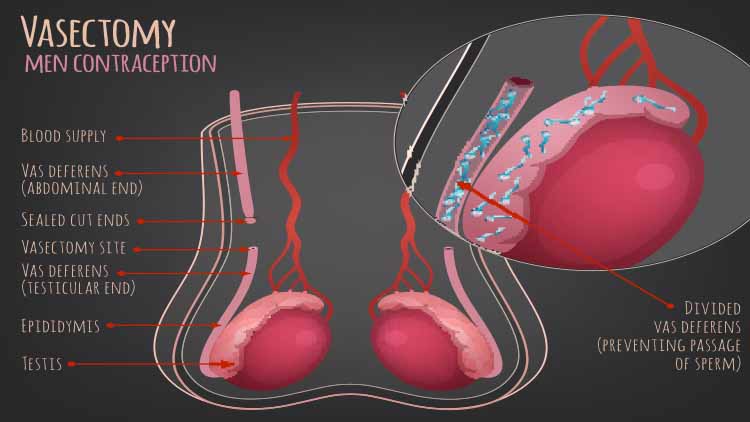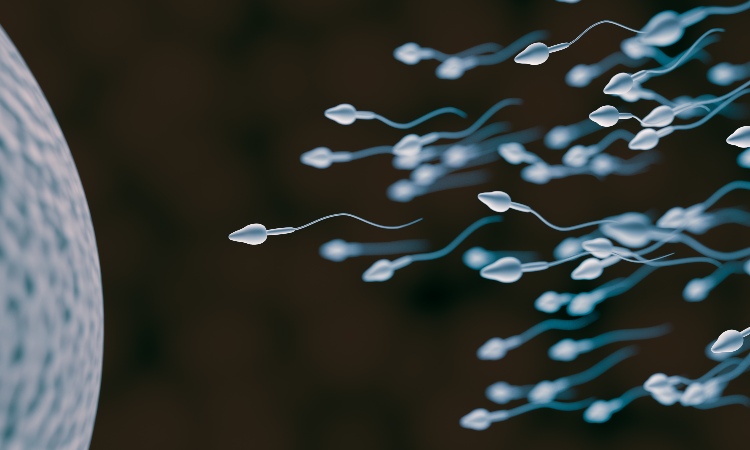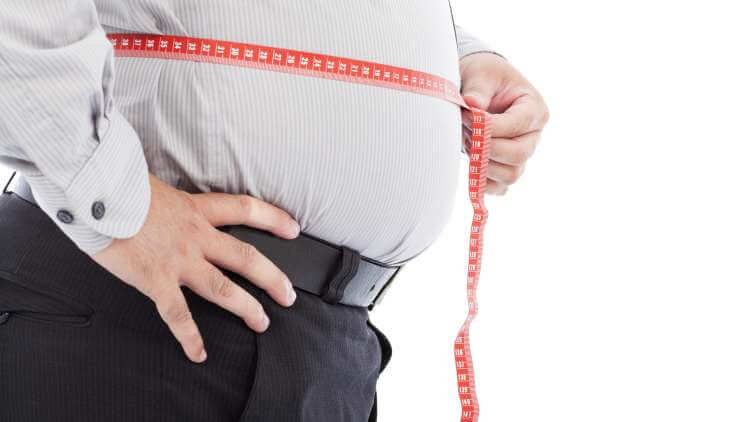A vasectomy is the only permanent form of birth control known to modern medicine. For some reason, people are under the impression that a vasectomy somehow also cuts off the supply of testosterone to the body. These claims are false and there is no observable link between testosterone levels in the body and vasectomies.
The following blog post will provide a thorough guide to vasectomies, the links between a vasectomy and testosterone levels as well as any side-effects of the procedure. It will conclude on common myths about vasectomies to help understand the procedure and help decide if you want to undergo the procedure yourself.
What Is A Vasectomy?
A vasectomy is a minor surgical procedure conducted as a form of permanent birth control. The surgery is often performed in personal clinics and in outpatient centers and they do not require you to stay overnight in the hospital.
With the discovery of new surgical techniques to conduct vasectomies men can recover within one week of the procedure. Vasectomies are designed to separate the connections of the urethra from the testicles so that no sperm is mixed in semen that could impregnate your sexual partners. To fully understand how a vasectomy works, we also need to understand how the male reproductive system works.
Male Reproductive System Anatomy
The male reproductive system comprises of the testes, the penis, and the prostate gland. These three constitute an interconnected collection of vessels and organs which are responsible for the procreative role of the male reproductive system.
A vasectomy disconnects the testes from the penis, eliminating the potential of the seminal fluids to allow fertilization of the female egg.
- Testes
The testes are responsible for producing testosterone and sperm in the body. The vas deferens is a tube that extends from the testicles, loops over the bladder and connects to the urethra in the penis. The vas deferens is also responsible from carrying sperm from the testicles to the urethra during ejaculation.
- The Penis
The penis comprises of the dorsal nerve, dorsal artery, Corpora Cavernosa and Corpora Spongiosum as well as the urethra. The dorsal nerve is responsible for the experience of sensations in the penis, while the dorsal artery carries blood to the penis for an erection.
Additionally, the Corpora Cavernosa and Corpora Spongiosum are two tissues that run down the length of the shaft to protect the urethra and are responsible for the achievement of an erection. The urethra is a thin tube that runs from the bladder, through the penis which carries both the semen as well as urine out of the body.
- The Prostate Gland
The prostate gland stands alongside the seminal vesicle, which is responsible for the production of seminal fluid. During the process of ejaculation, the prostate gland spasms and the seminal fluid rushes through the urethra, to mix with the sperm produced in the testicles, through the vans deferens, and exits the body.
How a Vasectomy Works
The vasectomy cuts off the vans deferens from the urethra by severing the tube as it begins in the testes. Although every surgeon has their own approach to a vasectomy, there are two commonly used surgical techniques to sever the vans from the urethra: a non-scalpel vasectomy and a conventional vasectomy.
- Non-Scalpel Vasectomy
During a non-scalpel vasectomy your doctor feels around the skin of the scrotum to locate the vas. Once identified, they pinch the vas and hold the section of the tube between two clamps.
The doctors will then create a very small hole near the section of the vas that is held between the clamps and pull of the section from the hole. Then will then clip the vas and cauterize the two ends to effectively separate the vas from the urethra. This process will then be repeated with the other testicle.
- Conventional Vasectomy
During a convention vasectomy, the doctor will make one or two cuts on the scrotum to locate the vas. Once located, they will cut out a section of the vas and cauterize the two ends to tie them up with sutures, closing off the cut in the scrotum with stitches.
This is a relatively obsolete technique of conducting a vasectomy ever since the non-scalpel technique was adopted; however it is no less effective.
Vasectomy and Testosterone levels
When people find out that the vasectomy separates the testicles from the penis, they always ask the following question: does a vasectomy affect testosterone levels?
The vasectomy has been developed to simply redirect the flow of sperm to the urethra rather than separating the testicles from the body altogether. This misunderstanding stems from the fact that many people don’t understand how testosterone is released into the bloodstream.
Furthermore, the separation of the vas from the urethra has no implications for the production of testosterone in the body and you will continue to maintain the levels of testosterone.
The body produces testosterone as part of a complex connection of neurons and nerves which initiate/stimulate the production of the hormone. The pituitary gland in the brain releases neurotransmitters, which signal the testes to produce testosterone.
If the vasectomy had anything to do with these neural pathways, then there might be a possibility of the procedure affecting testosterone levels. However, a vasectomy doesn’t even come close to these organs/neural pathways.
The Vas and the urethra have nothing to do with the levels of testosterone the testes produce or with the transport of testosterone into the bloodstream. Short of completely removing the testicles from the body, there is nothing that can affect the levels of testosterone in the blood or the amount that is being produced.
When the testes generate testosterone, these are released into the bloodstream through a complex connection of blood vessels connected to the organs. A vasectomy doesn’t affect this process either; it is completely separate from the processes responsible for testosterone levels in the blood. As such, vasectomy has no side-effects for testosterone and there is no relation between vasectomy and testosterone.
Potential Side Effects
Although vasectomies are a relatively minor surgical procedure, there are a fair few number of side-effects associated with these. Each of these side-effects are easily treated and reversed. The common side-effects are:
- Chronic pain and discomfort
- Failed separation of the vas
- Epididymitis or the inflammation of the testes
- Sperm granulomas
- Discoloration of the scrotum such has through bruising
- Minor bleeding from the surgical site
- Infections
- Swellings
If you experience any of these side-effects, speak with your doctor immediately. It’s very unlikely that the side-effects are serious even if it may seem that way and they will be able to develop a quick-fix for these.
Myths About Vasectomy
As we mentioned before, there are a lot of myths surrounding a vasectomy, which is why people don’t opt for the procedure. All things considered, it’s perhaps one of the safest surgeries known in modern medicine and it doesn’t hamper your life sexually or physically. As such, we’ve collected some of the more common forms of myths associated with vasectomies and tried to debunk each of these:
You Can’t Ejaculate After a Vasectomy
Contrary to popular belief, neither the testes nor the Vas Deferens have any connections to the ejaculation process. Only 2%-5% of seminal fluid comprises of sperm and the physiological processes that lead to ejaculation don’t rely on the testes at all.
The seminal vesicle holds the seminal fluids which is mostly water and a collection of nutrients to sustain the sperm cells. The seminal fluids are released from the vesicle during orgasm because the prostate gland spasms and forces it out through the urethra.
The sperm doesn’t even become a part of the seminal fluid until the fluid reaches the urethra and so severing the connection of vas with the urethra will have no effects on the production or release of the semen. As such, you will ejaculate as you always have even with a vasectomy.
You Get Prostate Cancer After a Vasectomy
Cancer is the name for a collection of illnesses associated with abnormal production of cells which breakdown the surrounding biological structures.
As a matter of principle, there is no link between surgical procedures and the development of cancer, because cancer development requires molecular and chemical imbalances in cell gene structures. These imbalances are not caused by surgical procedures, much less vasectomies.
Additionally, the testes and vans are two biologically distinct parts of the human body. There is no connection between any of these glands/organs and as such tampering with one of them cannot induce a cancer in another.
You Won’t Produce Sperm After a Vasectomy
A vasectomy doesn’t affect the functioning of the testes; it only severs the connections between the testes and the urethra. The only reason your testicles would stop producing testosterone is you somehow biologically interfere with the organs.
The vasectomy doesn’t include operating on the testes and as such these will continue to produce sperm; it’s just that it won’t ever become part of the semen that is ejaculated.
Vasectomies Can be Reversed
Unfortunately, a vasectomy is irreversible. Once the cuts are made to the Vas, these can’t be undone. Although it is possible to surgically reverse a vasectomy, these are rarely ever successful.
Vasectomies Have Immediate Effects
Imagine the vas to be a straw that is filled with liquid. Just because you cut off the straw from the source of the liquid, doesn’t mean that some of it won’t stay behind. Similarly, the effects of a vasectomy take a while to materialize because a lot of sperm is left behind in the vas and will be present in the first few ejaculations of seminal fluid.
You have to get yourself tested to see if the seminal fluid is clear of any sperm before you can be sure that the vasectomy was successful and the effects have set in.
Vasectomies Affect Sexual Functioning
To answer this, there is a need to define what sexual functioning means. Sexual functioning largely means erectile dysfunction because fertility isn’t a concern with vasectomies. The process of getting an erection involves both psychological and physiological processes.
People develop erectile dysfunction when there is inadequate blood flow to the penis, loss of sensation in the penis or some psychological factors which prevent an erection. A vasectomy doesn’t involve the penis in any way whatsoever and thus cannot affect penile physiology.
So if you do have problems with sexual functioning after a vasectomy, it’s very unlikely that it has anything to do with erectile dysfunction.
Conclusion
In conclusion, vasectomies are a completely safe procedure and one of the most effective ways of birth control. This blog has provided in-depth insight into vasectomies and offered the truth about vasectomy and testosterone levels.
Even though there are a lot of myths associated with the procedure, there is no truth to these statements and most of them are contrary to the biological make-up of the human body.
As such, there is no link between testosterone and vasectomies; your body will continue to make testosterone irrespective of whether you get a vasectomy. Additionally there are no associated sexual side-effects of the procedure.























